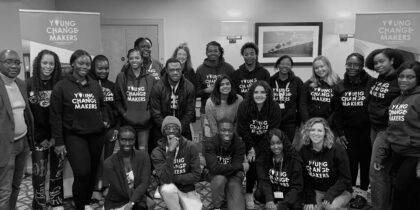The vast majority of teachers would like to have anti-racism training, according to a survey carried out by Centre for Mental Health.
The research (in conjunction with social action group Not So Micro) found that while less than a third of teachers have ever received training on racism or microaggressions, nine out of ten (94%) believe it should be given to all school staff.
A racial microaggression is defined as a ‘daily racial bias against people of colour because they are members of a racialised group’. Research has consistently shown that exposure to racism and microaggressions damages young people’s mental health.
67% of school staff said they lacked confidence in spotting a racial microaggression in school, and 45% believe that fellow teachers don’t understand the mental health impacts of racial microaggressions on young people. Some reported that concerns about racist incidents were not taken seriously by senior management.
One Pakistani primary school teacher described being told they were ‘over reacting’ and ‘not taken seriously’ when they reported a microaggression, while a white teacher highlighted a ‘lack of training and inconsistency in school policies’. A teacher of African ethnicity said they had reported a microaggression but experienced a backlash from senior management: ‘they felt that there was no solid evidence and said I couldn’t rely on my gut feelings’.
The research surveyed over 200 teachers, teaching assistants, and school and college leaders from across England. Levels of confidence in identifying and addressing microaggressions varied among respondents, but there was almost unanimous support for making training a compulsory part of teacher training.
Centre for Mental Health and Not So Micro are calling on the Department for Education to make racial microaggression training a mandatory element for teachers, to protect the mental health of students and staff from racialised communities.
Not So Micro is a social action project developed through the Young Changemakers programme, an initiative created by Centre for Mental Health, UK Youth and The Diana Award and made possible by the players of People’s Postcode Lottery and Comic Relief.
Ashleigh Onabajo, co-founder of Not So Micro, said: “We were excited to do this survey and believe it shows exactly what we’ve been saying since the start of this project: staff in education need to be better equipped in order to handle incidents involving racial microaggressions, and educators appear to agree.”
Kadra Abdinasir, Associate Director for Children and Young People at Centre for Mental Health, said: “We know that experiences of microaggressions and racism can profoundly affect people’s mental health. In schools, young people have told us that these experiences occur frequently but are too often overlooked or downplayed. Not only does this harm young people’s mental health, but it also prevents them from having a positive educational experience and reduces their sense of school belonging. That’s why we support Not So Micro’s call for racial microaggressions and anti-racism training to form part of teacher training.”
Paul Whiteman, general secretary of school leaders’ union NAHT, said: “The findings from this research reflect the desire from teachers and school-leaders alike to see regular, mandatory anti-racism training for all staff in schools, as part of Keeping Children Safe in Education. We need everyone that works in schools to be empowered to ensure that there is a strong anti-racist approach to education. It matters for the health, well-being and futures of pupils, staff and school leaders, as well as the communities that they serve.”




